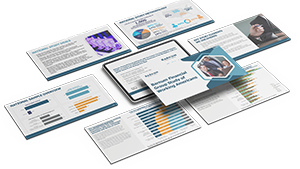
If COVID-19 has affected you financially, prioritizing your bill payments could be paramount to you right now. The silver lining is many bill providers are implementing emergency policies to help customers experiencing challenging financial times.
Utility providers
Many utility companies will keep the lights on for customers who can’t afford their bills during the coronavirus lockdowns. If you haven’t already received an email from your utility provider, see if they’ve released a statement on their website on any policy updates regarding coronavirus. There’s a good chance they won’t shut off your service or charge you late fees if you can’t pay right now.
Cable and Internet service providers
The FCC has asked Internet and cable providers to follow suit and not shut off services or charge customers late fees if they can’t afford their bills for an extended period. Comcast, AT&T, Charter, Verizon, and Cox to name a few of the companies who have complied. Vox has a full list of companies that have agreed not to shut off services or charge customers late fees.
If your bank account isn’t where it needs to be, it might be worth canceling automatic bill payments for bill providers that have implemented these policies. If you won’t be able to afford the payment on your due date, the last thing you want is to accumulate overdraft fees. Charter is also offering two months of free service for new customers who live in households with students, and they’re waiving installation fees.
Credit card issuers
Credit card companies are providing customers more options, and some of them are waiving late fees or offering reduced payment plans. Bankrate has a list of policies from major credit card issuers, i short, if you can’t afford your minimum payment, contact your credit card company and ask about their hardship programs.
Student loan servicers
Like mortgage companies, student lenders offer forbearance. This does mean you’ll pay more money over the course of your loan, but it might offer some relief in the short-term. Similarly, the Trump Administration has issued a student loan interest waiver for some federal loans. This means the interest on certain federal student loans will be waived during the coronavirus pandemic. Unfortunately, it doesn’t mean your monthly payment will go down. As Ron Lieber of The New York Times reports:
“Monthly payments aren’t going to go down at all. Instead, the entire payment will go toward paying down the principal amount on the loan. The result will be little short-term relief for many of the borrowers who celebrated the announcement. Instead, they will benefit later — say, if they pay enough principal during the waiver period to shorten the scheduled term of their loans.”
While this waiver will provide short-term aid, it might not lower your overall monthly payment. The Department of Education is still finalizing these details, and if you have a private loan, it’s worth contacting your lender to see what available options you could leverage.
Generally, if you’re struggling to pay all your bills, your loan payments are probably going to take priority, as bill providers seem to be offering more immediate relief options, including waiving late fees.
Securities offered through qualified registered representatives of MML Investors Services, LLC. Member SIPC. (www.sipc.org) 6 Corporate Drive, Shelton, CT 06484. (203) 513-6000.
.



